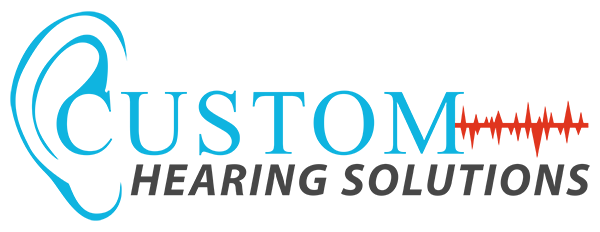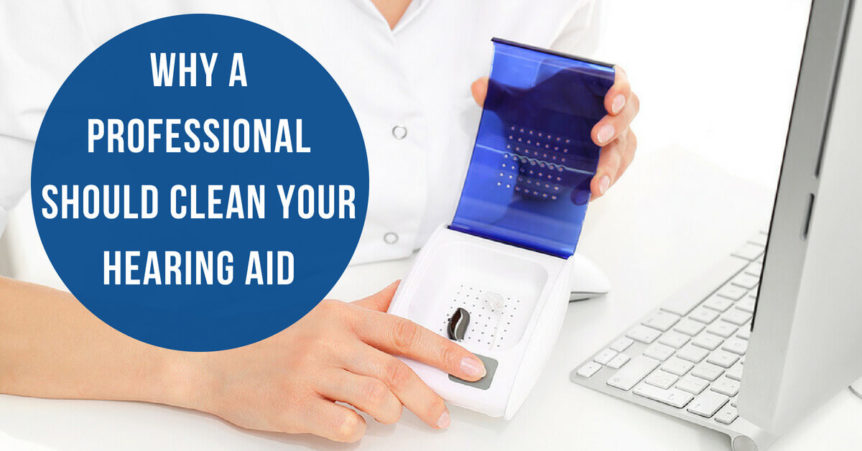Because at least a portion of our hearing aids sit inside of our ears, an accumulation of sweat and earwax is inevitable. Sometimes, this buildup is visible when we look at our hearing aids and when this happens, it can be very tempting to try to remove the debris on our own. While daily maintenance and light home cleanings of hearing aids is recommended, it’s extremely important that you leave the deep cleaning to the professionals. Hearing aids involve a lot of technology in a tiny package, and are therefore easily damaged when improperly cleaned or handled.
Why Do Hearing Aids Need Cleanings?
Hearing aids are similar to other pieces of technology, in that they operate most properly when they are well maintained. Especially in the summer months where everything is hotter, it doesn’t take long for sweat, earwax and our body’s natural oils to build-up in the receivers or microphones of our hearing aids. This accumulation is not only dirty, it also has the potential to carry bacteria. Dirt and build-up can also muffle your hearing aids’ sound quality.
How Often Should My Hearing Aid be Professionally Cleaned?
Exactly how often a deep cleaning by a professional is recommended will vary slightly depending on your hearing aid style, as well as how quickly your earwax or sweat builds-up. For some people, professional cleanings should be maintained every three months, while others can safely go about six months between cleanings. It is important to regularly touch base with your hearing healthcare professional to ensure you are scheduling maintenance, fittings, and cleaning appointments at regular intervals that are appropriate for you.
What Happens at a Professional Hearing Aid Cleaning?
During a professional hearing aid cleaning, your specialist will use specialized tools to gently remove any accumulation of earwax, sweat, dust or debris from your hearing aids. The professional will ensure that all of the debris is removed safely and completely, without damaging any of the delicate interworking of your hearing aid. Your professional cleaning should include cleaning of the receivers, microphones, and any tubing your hearing aid may or may not have, as well as gentle cleaning of the outer housing. Most of the time, hearing aid cleaning appointments are rather quick, and do not often involve the need to leave your hearing aids overnight in the clinic.
What Can I Do at Home?
While deep and throughout hearing aid cleanings should be done by a professional, there are still daily maintenance and care procedures you can and should safely take at home in order to better care for your hearing aids. Follow these in order to keep your aids as clean as possible between professional appointments.
- Wipe with a soft, dry cloth. When wiping the outer casing of your hearing aids, do NOT use a wet cloth or wipes with any type of alcohol or chemicals in them. These can damage your hearing aids. A dry cloth will suffice for wiping dirt and grime from the outside of your hearing aid if done nightly.
- Remove ear molds to clean. If your hearing aid is a RIC or BTE model with removable ear molds, these should be taken-off prior to cleaning. Once removed, it is safe to wash the molds with a mild, gentle soap and warm water. Make sure the molds are completely dry before reattaching them.
- Get the right tools. Cleaning kits made specifically for hearing aids are very valuable tools for cleaning your aids. These kits typically come with a wax pick and a tiny brush that are gentle enough to use on your aids. When you see earwax or other dirt in your hearing aids, never try to use a pen or other “tool” to remove it – as it is very easy to cause accidental damage. These hearing aid cleaning kits are the only tools that should be used to clean your aids at home.
- Adopt healthy habits. One of the best ways to keep your hearing aids clean and in tip-top shape is to adopt healthy and preventative habits. Remove your hearing aids for your hygiene routine both in the morning and at night. When showering, keep your aids outside of the bathroom to avoid contamination with water or other chemicals.
If you have any additional questions regarding the care of your hearing aids or would like to schedule a cleaning, reach out to our friendly staff today.

